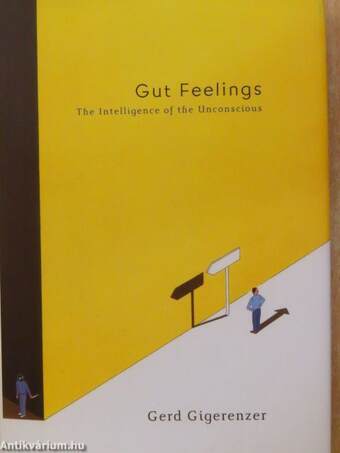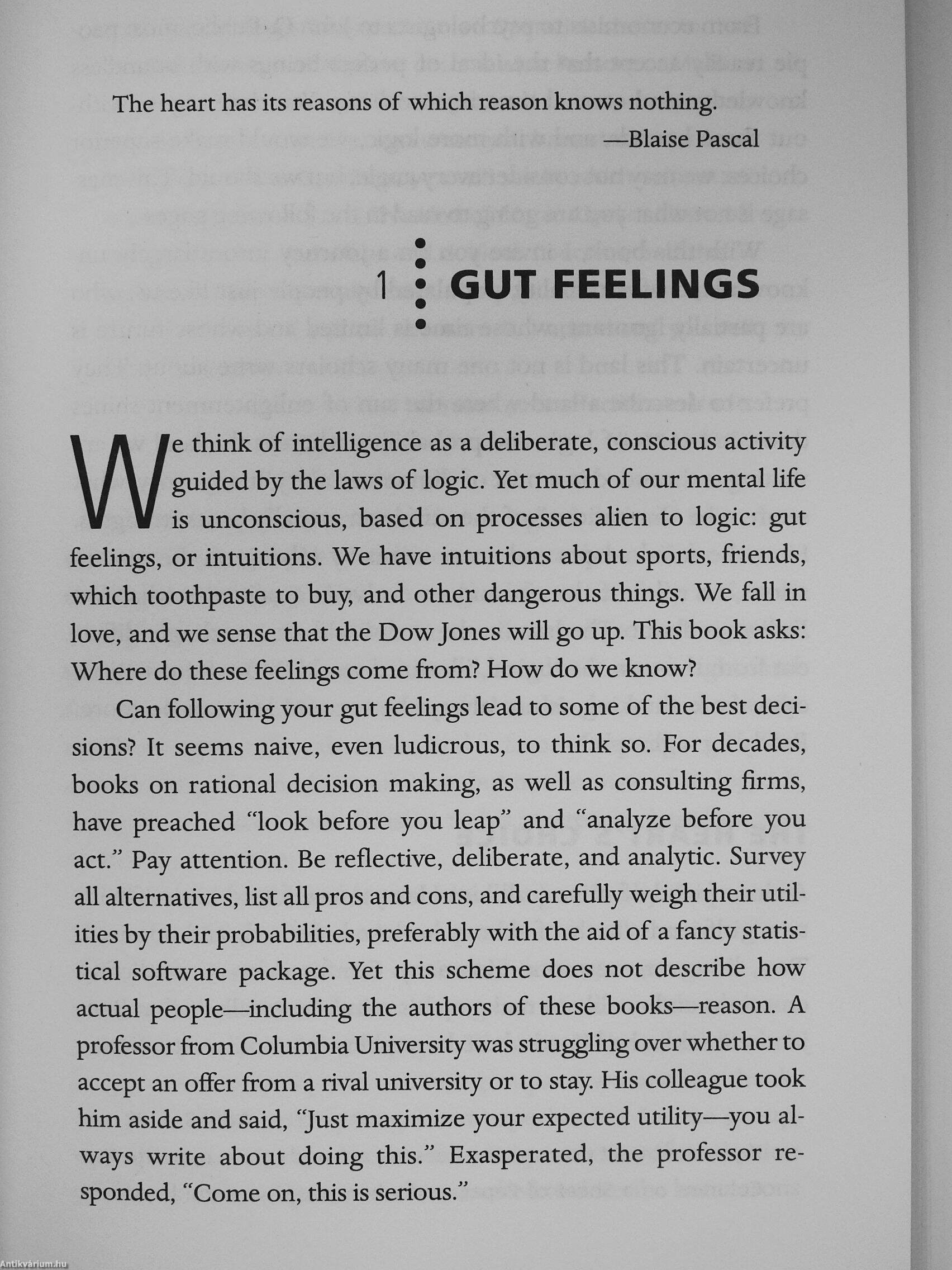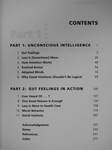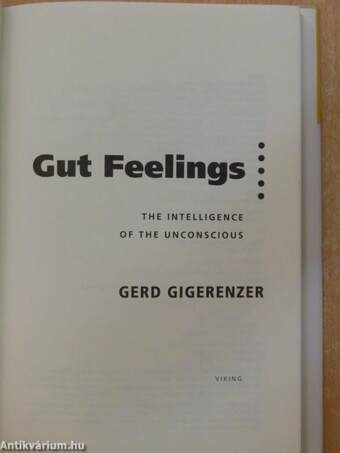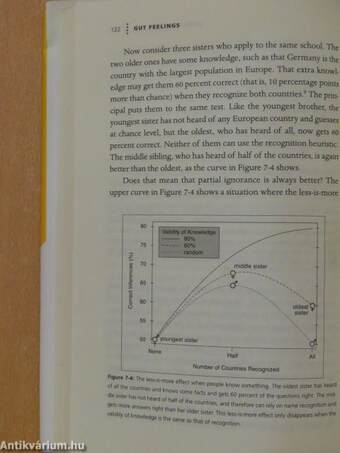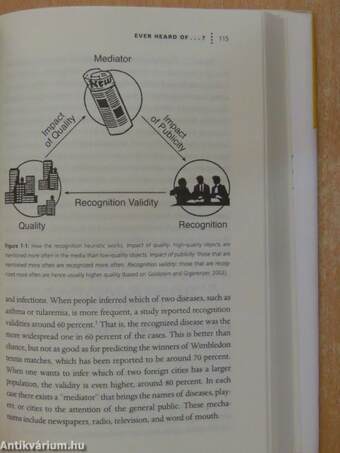1.062.879
kiadvánnyal nyújtjuk Magyarország legnagyobb antikvár könyv-kínálatát

VISSZA
A TETEJÉRE
JAVASLATOKÉszre-
vételek
Gut Feelings
The Intelligence of the Unconscious
| Kiadó: | Penguin Group Ltd. |
|---|---|
| Kiadás helye: | New York |
| Kiadás éve: | |
| Kötés típusa: | Fűzött kemény papírkötés |
| Oldalszám: | 280 oldal |
| Sorozatcím: | Viking |
| Kötetszám: | |
| Nyelv: | Angol |
| Méret: | 22 cm x 15 cm |
| ISBN: | 978-0-670-03863-3 |
| Megjegyzés: | Fekete-fehér ábrákkal. |
naponta értesítjük a beérkező friss
kiadványokról
naponta értesítjük a beérkező friss
kiadványokról
Előszó
TovábbFülszöveg
How does intuition work? What lies behind our moral behavior if not reflection and reasoning? How can simple "rules of thumb" help amateurs beat the stock market, outfielders catch a fly ball, parents choose a school, or lovers choose a mate?
Gerd Gigerenzer, a director at the Max Planck Institute for Human Development whose breakthrough research was a major source for Malcolm Gladwell's Blink, takes us step-by-step through the science of good decision making. The trick is not to amass information, but to discard it: to know intuitively what one doesn't need to know. Gigerenzer frees us from the jargon of experts and the drudgery of pros-and-cons lists. Instead, he suggests that we hone the cognitive, emotional, and social repertoire we've evolved over the millennia.
This repertoire consists of rules of thumb that, unlike the rules of theoretical logic, have evolved expressly to cope with the human experience. Social intelligence, for example, relies on powerful intuitive tools... Tovább
Fülszöveg
How does intuition work? What lies behind our moral behavior if not reflection and reasoning? How can simple "rules of thumb" help amateurs beat the stock market, outfielders catch a fly ball, parents choose a school, or lovers choose a mate?
Gerd Gigerenzer, a director at the Max Planck Institute for Human Development whose breakthrough research was a major source for Malcolm Gladwell's Blink, takes us step-by-step through the science of good decision making. The trick is not to amass information, but to discard it: to know intuitively what one doesn't need to know. Gigerenzer frees us from the jargon of experts and the drudgery of pros-and-cons lists. Instead, he suggests that we hone the cognitive, emotional, and social repertoire we've evolved over the millennia.
This repertoire consists of rules of thumb that, unlike the rules of theoretical logic, have evolved expressly to cope with the human experience. Social intelligence, for example, relies on powerful intuitive tools including trust, deception, identification, rumor, wishful thinking, and cooperation. Social and political change, good or bad, often originates from these factors rather than from lucid reasoning. In fact, what looks like a reasoning error from a purely logical perspective can be a highly intelligent social judgment in our fiendishly complex lives.
Nobel laureate Herbert Simon called Gigeren-zer's research "a revolution in cognitive science, striking a great blow for sanity in the approach to human rationality." In wry, accessible prose, Gut Feelings provides us with a brilliant exploration of what makes us tick. Vissza
Témakörök
Gerd Gigerenzer
Gerd Gigerenzer műveinek az Antikvarium.hu-n kapható vagy előjegyezhető listáját itt tekintheti meg: Gerd Gigerenzer könyvek, művekMegvásárolható példányok
Nincs megvásárolható példány
A könyv összes megrendelhető példánya elfogyott. Ha kívánja, előjegyezheti a könyvet, és amint a könyv egy újabb példánya elérhető lesz, értesítjük.



